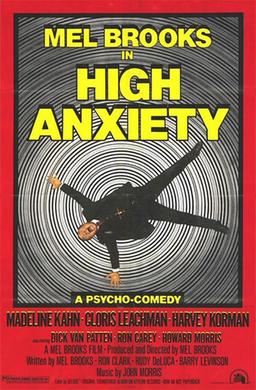 |
| High Anxiety (Photo credit: Wikipedia) |
- change doesn't occur unless the fear of the consequences of not changing ("survival anxiety") is greater than the fear of the consequences of changing ("learning anxiety").
- The strategy for encouraging change is not to increase survival anxiety, but to decrease learning anxiety.
"Start using Excel in 3 months or lose your job!" is not nearly as effective as "Excel is really pretty easy, we've set up a couple of seminars to take you through the key concepts".
- There are two basic types of problem: "technical" - nobody can hear the prof, say - and "adaptive" - no one can understand what the prof is getting at.
- Technical problems are easy to fix: get the prof to use a microphone.
- Adaptive problems are much harder, because complex. Why doesn't anyone understand the prof? Is the subject too difficult for this level of class? Is the prof not explaining things clearly? Is the class not doing the homework or the readings? Is the textbook badly written? Do the assignments need to be broken down more clearly?
- It is very very seductive to apply a technical solution to an adaptive problem.
Nobody understands the prof? Probably they just can't hear her! Let's get her a microphone! Problem solved. Except most likely it isn't solved. But we LOVE to use technical solutions because they are simple, quick, and we can tell ourselves we've done something and can move on to the next problem. Even though what we've done has not actually fixed anything, usually.
So, how do these apply to research?
- I am often tempted to persuade myself to embark on a new project, or finish an old one, by increasing the stakes ("survival anxiety"). I'll pick a project with a firm deadline set by someone else, because then the consequences will be awful if I don't finish on time. But breaking the project down into doable steps ("decreasing learning anxiety") is actually much more effective both in getting the work done, and applying myself to the process.
- The solution to research snags is NOT to try out new word processing/ database software. I should cross-stitch this on a sampler and hang it over my desk.
NEW SOFTWARE WILL NOT SOLVE YOUR RESEARCH PROBLEM. RESEARCH WILL SOLVE YOUR RESEARCH PROBLEM.
But playing with new software is so much fun, and look how productive I'm being!
So: today, reading over the revisions on 3 articles for an edited collection. Is this research? Well, not my own research, but worth doing, anyway.
No comments:
Post a Comment